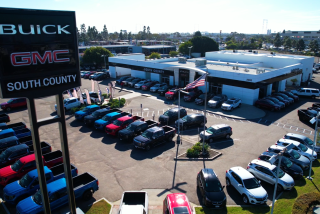European Luxury Car Sales Fall Sharply : Stock Crash Is Blamed; Market for Domestic Cars Remains Steady
DETROIT — Sales of expensive European luxury cars fell sharply in late October, while domestic car sales remained generally stable, the auto industry reported Wednesday, providing the first solid evidence of the effect of the stock market crash on consumer spending.
More evidence is expected today, with the nation’s major retailers due to report sales for October.
Industry analysts, auto industry executives and dealers agreed that the crash was largely responsible for the dramatic drop in luxury car sales at the end of October, as affluent consumers hit with investment losses put their car-buying plans on hold.
“You aren’t seeing an impact on domestic makes yet, but the numbers for the pricey imports makes you think you are seeing a yuppie margin-call effect,” said David Healy, automotive analyst with Drexel Burnham Lambert.
Indeed, many luxury car dealers in California and around the country reported that sales fell and customer traffic in their showrooms declined immediately after the Oct. 19 stock market debacle.
“We’re feeling a slowdown; there is no doubt about it,” said Dan Guarrero, sales manager at Zipper Porsche in Beverly Hills, which has had some orders canceled. “It’s pretty heavy. The fact that we’re seeing private ads in the newspaper for people selling ’87 model 911 Cabriolets means these boys are looking for cash. You couldn’t even get one of those three months ago” because they were so popular and in such short supply, Guarrero said.
“There has been a slowing down of business in this dealership,” acknowledged Mark Juron, general sales manager of Mercedes-Benz of Manhattan, a New York City dealer that is the closest Mercedes outlet to the New York Stock Exchange. “We’ve had a few canceled orders, and people did attribute it to the market.”
The sales slump seemed to affect the most expensive European car lines the most.
Nationwide, Porsche sales fell 30.9% in October. Although Porsche and other importers report sales only on a monthly basis, the German sports car maker said virtually all of the decline came after the stock market crash. John Cook, president of Porsche of North America, blamed the decline on “the uncertainty surrounding the financial markets.”
Meanwhile, Mercedes-Benz reported that October sales fell 25.7% from last year’s pace; BMW said its sales were off 10.5%, and Volvo reported a 26.8% drop.
On Wednesday, the Los Angeles Times Poll also reported that one out of three Americans plans to postpone or reduce a major purchase such as a house, car or vacation as a result of the stock market drop.
Some of the declines posted by the Europeans could be explained by other factors, however. For instance, Jaguar, the British luxury car maker, said its sales fell 20.9% in October but blamed the decline on supply shortages. Audi posted a 66.5% decline, the biggest drop of any major European import, but that plunge could be attributed to a wave of bad publicity over a safety problem last year on Audi cars.
Little Effect
Still, the market crash clearly scared off many rich consumers. Cars costing $40,000 or more lost some of their allure after Oct. 19. “You can say Jaguar was due to supply and Audi because of safety, but you can’t fully explain the drop in BMW, Mercedes and the rest without taking into account the stock crash,” Healy observed.
But for the domestic and Japanese auto makers, the stock market seemed to have little effect on sales during October. Sales of U.S.-built cars fell just 0.4% in the final ten days of October, the industry’s first full 10-day reporting period since the crash.
General Motors, which has been in a yearlong slump, said its sales fell 5.8% during the final 10 days of the month, while Chrysler said its sales were off 4.2%. But Ford posted a 12.6% gain during the period. (Month-end statistics for October showed a greater drop, but that was largely due to big decreases reported for early October.)
Ford executives claimed that the latest figures indicated that the crash’s effect on Detroit might not be severe.
“At this time, I’m encouraged by the results in October,” Ford Vice Chairman Harold (Red) Poling told reporters in Wixom, Mich., on Wednesday. “The underlying economic factors are still the same as before the crash.”
Many of the major Japanese importers, who also report on a monthly basis, also turned in gains for October. Toyota said its sales of imported cars, excluding those built in the United States, rose 3.5% during the month, while Honda’s import sales were up 4.9%. Nissan, however, suffered a 14.2% drop for October.
Times researcher Leslie Eringaard contributed to this story.
AUTO SALES
% October 1987 1986 change GM 257,318 328,735 -21.7 Ford 144,499 155,142 -6.9 Chrysler 77,359 109,838 -29.6 Honda U.S. 28,046 27,106 +3.5 VW U.S.* 4,189 5,364 -21.9 Nissan U.S. 8,188 6,623 +23.6 Toyota U.S. 4,119 827 +398 DOMESTIC 523,718 633,635 -17.3 Toyota Imp. 55,361 53,477 +3.5 Nissan Imp. 33,094 38,578 -14.2 Honda Imp. 43,477 41,457 +4.9 Mazda 20,368 17,472 +16.6 Subaru 17,728 14,884 +19.1 VW Imp. 10,765 9,969 +8.0 Volvo 6,414 8,765 -26.8 Hyundai 20,714 17,576 +17.9 Others 65,579 69,615 -5.8 IMPORTS* 273,500 271,793 +0.6 Total U.S. 797,218 905,428 -12.0
*Estimate
HOW LUXURY CARS FARED IN OCTOBER
% Make 1987 1986 change Jaguar 1,970 2,490 -20.9 Mercedes 7,609 10,235 -25.7 BMW 7,403 8,275 -10.5 Porsche 1,480 2,114 -30.0 Cadillac 24,938 24,375 +2.3 Lincoln 15,050 18,702 -19.5 Volvo 6,414 8,765 -26.8 Saab 3,872 3,871 -- Audi 1,944 5,800 -66.5 Acura 10,024 7,146 +40.3
Los Angeles Times






